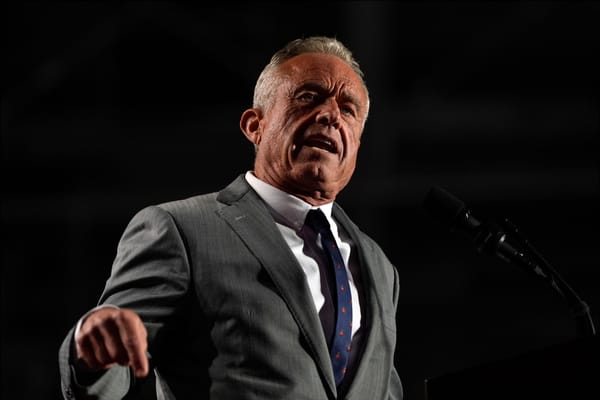Robert F. Kennedy told his children that physical courage was important because it served as preparation for the much more difficult and essential test of moral courage. If confirmed as secretary of health and human services, his son and namesake will need both. Implementing Kennedy’s agenda to “Make America Healthy Again” will require confronting extremely powerful and entrenched interests: not just Big Food, Big Ag, and Big Pharma, but also the Intelligence Community—more on which in a moment.
First and foremost comes the issue of agency capture by corporate interests. The US public-health sector is rife with conflicts of interest that amount to legalized corruption. For example, all public-health-agency budgets are heavily dependent on fee-for-service research work contracted in government labs by private pharmaceutical firms. The pharmaceutical industry isn’t required to use government labs; rather, it chooses to do so on a case-by-case basis. It also uses private labs and has its own labs. Meaning, the industry holds the ability to withdraw lucrative contracts from federal labs if it dislikes the results.
“The regulator is paid directly by the industry it regulates.”
The Food and Drug Administration website describes this arrangement as follows: “About 54 percent, or $3.3 billion, of FDA’s budget is provided by federal budget authorization. The remaining 46 percent, or $2.8 billion, is paid for by industry user fees.” Similarly, fully 75 percent of the FDA’s drug approval testing program is paid for directly by the pharmaceutical companies that have their products tested. In other words, the regulator is paid directly by the industry it regulates.
Worse yet, on top of their salaries, the government-employed scientists doing all this work are allowed to own patents derived from the research they conduct as government workers for private corporations. Government scientists are permitted to receive royalties of up to $150,000 annually per patent—but to be fair, the average such patent earns only $9,000 a year. Anthony Fauci, former director of the National Institute of Allergy and Infectious Diseases, co-owned six HIV-related patents while he ran that agency.
Agency capture isn’t the only problem. Along with addressing legalized conflicts of interest, Kennedy will be under pressure to open the books on what went wrong with the management of the Covid pandemic. That will likely mean going beyond the issue of profit-driven agency capture, and could involve a direct confrontation with the Central Intelligence Agency.
